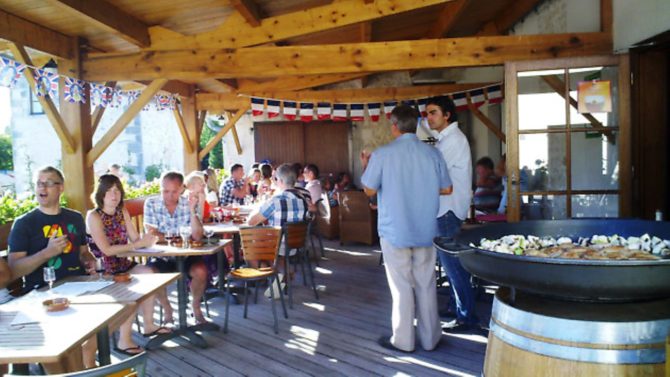10 top tips for retirement in France

Many people dream of retiring to France, and with the range of benefits and choice of options available it’s hardly surprising, says Sam Bottomley
Access
Firstly, it is very easy to get to and from the UK, which means not losing touch with your nearest and dearest. If there are any urgent problems you can usually get back to the UK within 24 hours as there are many regional airports offering low-cost flights, and the rail system is very good.
It won’t cost a fortune for your family to visit and you can still be on hand to perform your grandparent duties of looking after the children, but perhaps during the holidays rather than after school. The trains in France are full of grandchildren being packed off to spend the holidays with mamie et papy while their parents are at work.
Healthcare
Once you reach state retirement age, as long as your national insurance payments are up to date, you will be able to access healthcare. Initially, you will need an S1 certificate which is supplied by the pensions office in the UK. When you receive this, the next step is to have your birth certificate and marriage certificate translated by a certified translator. In addition, you will need to take your passports and a utility bill from your French property to the local CPAM office, which is the government organisation in charge of a large proportion of healthcare depending upon your individual circumstances.
Once all your paperwork has been accepted, you will initially need to wait for an attestation which is a temporary certificate you can use at the doctors, dentists and pharmacies. Next you will receive a request for a passport photo, and once this has been received your carte vitale will be sent to you. If only one of you has reached retirement age your partner can piggyback on your card and social security number until they become eligible to receive these in their own right.
The next choice will be top-up insurance or a mutuelle, which is available via dedicated insurance companies or the same high street companies you use for your house and car insurance. They offer you different percentages of cover depending on the amount you want to spend each month.
As a rule of thumb they generally don’t pay very much towards glasses and dental work so many people pay a visit to a high street optician when they visit the UK. It is advised to take out a policy to supplement the cover provided by a carte vitale.
TOP TIPS
1. Get in touch with the pensions office in Newcastle to find out when you will be eligible for your S1. You will need to consider taking out private health insurance until you reach state retirement age. Either you or your partner can be eligible, it doesn’t need to be both of you. The first person who qualifies will use their S1 status and the other person can share their rights until they qualify for their own S1.
2. Be sensible when looking at your options and avoid buying a huge garden that you will need to maintain. The average cost for a gardener is €25 an hour.
3. When downsizing, you can donate furniture to your local Emmaus which is a reputable charity. They can collect large items.
4. Don’t be afraid to ask for help. There are many people and companies who offer their services to help with translation and paperwork.
5. Introduce yourself to your local maire; he or she is quite influential so it’s good to get to know him. If you are invited over for apéritifs by your neighbours I would advise you to accept and go with your dictionary and a bunch of flowers. Some last an hour or two and others last well into the night. Your language will improve no end after a couple of glasses of wine.
6. When you are looking at locations, check out the climate and amount of rainfall in the area. Heating a stone house so that it will be cosy in winter is quite expensive, and equally if the summer temperatures are too hot you may want to consider a portable air-conditioning unit for your bedroom.
7. While it’s lovely to have lots of bedrooms for your summer visitors, are they going to visit every year? You don’t want to invest all your money in a property which will largely sit empty.
8. Choosing a property in the middle of nowhere, where you can hear nothing except for the grasshoppers, is incredible, but the convenience of not having to get in your car every time you want a loaf of bread or a pint of milk possibly outweighs this. I would encourage you to consider a village with a few shops.
9. Consider the proximity of regional airports or motorways; it will make it so much easier if you want to pop back to visit your family in the UK.
10. If you are hesitant about investing in a property you might consider renting first, either in the short term while you are deciding if retirement in France is right for you, or in the long term as this will give you more flexibility if you decide to return to the UK.
Share to: Facebook Twitter LinkedIn Email


